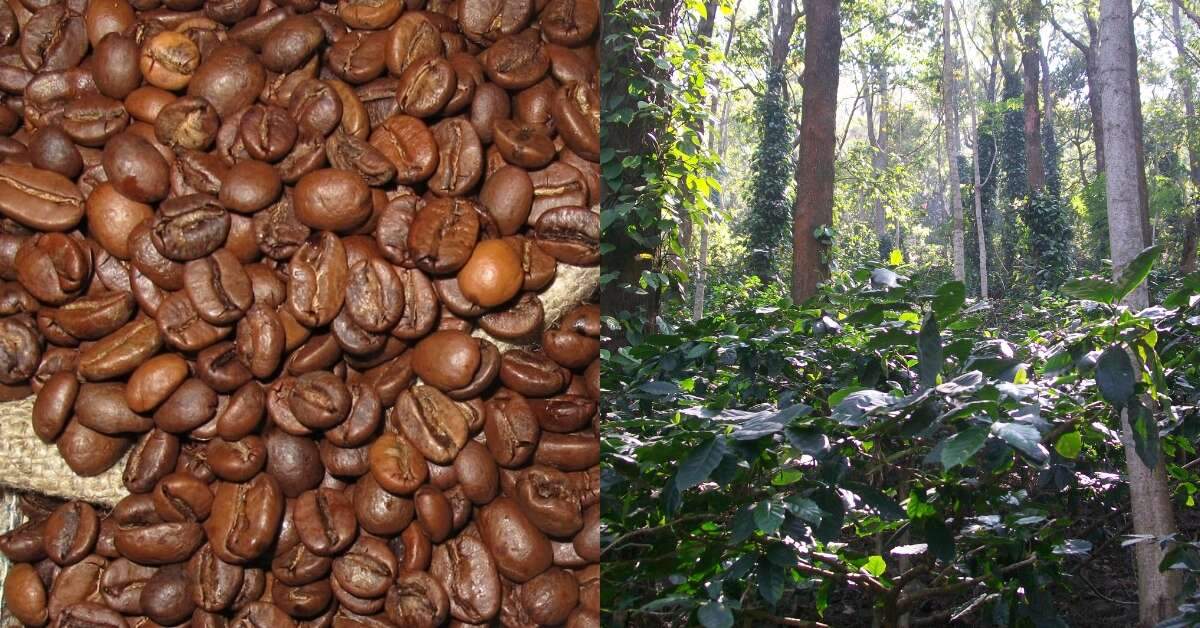

Araku coffee made headlines recently when Prime Minister Narendra Modi mentioned it on his show ‘Mann Ki Baat’, as an Indian product destined for global fame. This is not the first time Andhra’s world-famous brew made the news and won hearts. In the G20 summit in India in 2023, as international dignitaries left with gift hampers bursting with authentic Indian products and artefacts, Araku coffee was included in the roster, folded in between homegrown ‘brands’ like Nilgiri tea and Kashmiri saffron. One reason for this large-scale recognition is certainly the uniqueness of Araku coffee beans, which stand apart for their texture, size, and rare aromatic profile – Arabica, with sweet undertones. Grown at an altitude of 900-1100 metres at Araku Valley in the ASR district – where 91% of the population is from tribal communities – its rich soil and temperate climate come together to make this cup of pure perfection possible.
In the world of a caffeine lover, coffee can mean having a good way to start the day. In the world of about 1.5 lakh tribal families involved in coffee cultivation in Araku Valley, coffee means having a stable livelihood. As the Prime Minister mentioned on his radio show, Araku coffee today is more than a brew, it is the success story of Araku tribals, who have been economically and environmentally uplifted through coffee.
Once upon a time, in the very late 1800s, 40 km away from Araku, the raja of Vi-zianagaram had a coffee estate at Ananthagiri, says the Vizagapatnam Gazette of 1907. Following suit, coffee trees popped up in Peddavalasa in the Araku region as one Captain Owen, a British officer, sent up seeds. Come 1920s, Chintapalli, Araku, and Ananthagiri nurtured small coffee plantations, and things continued this way until the mid-1980s, when coffee plantations still covered only about 1,800 acres. Then, things changed drastically when the Integrated Tribal Development Agency (ITDA) offered ‘patta’ or the right to use land to the tribals. In addition, Naandi Foundation, in 1985, launched the Araku Coffee initiative to train tribal farmers in organic coffee cultivation and establish a sustainable farmer-owned supply chain that would connect them directly to consumers.
As it turns out, they barked up the right tree, as Araku coffee today has been recognised as one of the world’s finest coffees, with the Speciality Coffee Association rating it a solid 90 out of 100. These beans are bound for markets in Switzerland, France, Italy, Sweden, the US, the UAE, Japan, South Korea, and beyond!
Araku coffee is already special because of its cultivation, which took off merely on the basis of experimental production, as the plant has never been native to the region. But what makes this crop all the more valuable is the fact that it has been grown through organic regenerative agricultural practices since its inception. Local farmers never used chemical fertilizers to start with, and instead relied on organic fertilization and natural pest control. This organic cultivation process is a credential that has been formally recognized and certified by the Union Government.
Additionally, great care is taken to maintain quality. The coffee beans are never dried directly on bare soil, as this can impart unwanted earthy flavors and cause mud particles to stick to the beans. Instead, they are dried on alternative surfaces such as cement tiles, aluminum trays, and locally crafted bamboo trays to preserve the coffee’s quality.
The coffee cultivation is nature-friendly in other ways, too! Sheltered under the shade of other trees including jackfruit, mango, rosewood, custard apple, and mulberry, coffee plants in Araku grow under canopies, which help strengthen soil fertility. Coffee crops are also heavily dependent on shade.
Additionally, the canopies also act as natural shields and protect coffee crops from unforeseeable shifts in weather. Agricultural practices like these not only guarantee the high quality of coffee but also lessen the ecological footprint.
While eco-friendliness is evident in the cultivation process, Araku coffee has also planted seeds of eco-consciousness in the indigenous communities that grow it. Earlier, Araku tribals largely farmed through ‘podu’ farming or slash-and-burn agriculture, a process wherein trees of the forest are cut down and plant remains are burnt so that the land may be used for farming. After cultivation, the area is left alone to recover for several years. While this process is conventional to Indian farming, it is a significant cause of soil erosion, deforestation, and ecological imbalance. The onset of coffee farming has helped farmers wean off this practice.
Araku tribals have also been harbingers of sustainability by being involved in reforestation efforts. Project Hariyali, by the Mahindra Foundation, in collaboration with Naandi Foundation, helped the locals plant up to 14.90 million trees in the region, bettering livelihoods and improving biodiversity. This massive reforestation effort not only enriches the soil and provides shade for coffee plants but also mitigates climate change—a true testament to the concept of ‘Return on Equity’ in building a global social enterprise.
Obviously, one of the main ways coffee has aided in tribal upliftment is through income generation. It provides primary sustenance to many families, promising them stable livelihoods. Meanwhile, the intercrops they cultivate, like pepper, jackfruit, mango, and more, serve as other streams of income.
The aforementioned Naandi Foundation, a non-governmental organisation has been instrumental in making sure that farmers reap what they sow – directly. By providing good quality seeds and setting up a sustainable supply chain with on-site processing units that collect coffee berries right from the farmer, Naandi Foundation has helped increase the farmers’ shares of profits. Naandi Foundation also takes farmers through 21 steps of technical training in agricultural practices like farm, shade, and soil health management. Besides this, the NGO has been proactive in promoting Araku coffee as a brand in itself – efforts which have paid off. Naandi Foundation’s decades-long work in Araku, with the farmer-centric framework, has become a recognised economic model called, ‘Arakunomics’.
Another helping hand comes from the Andhra Pradesh government’s Girijan Cooperative Corporation (GCC). GCC plays a crucial role in this ecosystem by developing coffee plantations in this area. GCC is also responsible for purchasing a substantial portion of the coffee produced and facilitating its marketing under the ‘Araku Valley Coffee’ brand. This cooperative model ensures that the farmers receive a fair share of the profits.
With all these aspects coming together, Araku Valley is now the largest certified organic and biodynamic farming coffee plantation in the world. The regional coffee even received a Geographical Indication (GI) tag in 2019, further cementing its reputation as a unique and high-quality product.
Looking ahead, plans are in place to process Araku coffee entirely within Andhra Pradesh, allowing GCC to market it as a ‘Make in AP’ product. Regardless of the label, however, Araku coffee has always been Andhra’s very own exotic brand!
Stay tuned to Yo! Vizag website and Instagram for more news updates.
This post was last modified on 15/10/2024 7:08 pm
Family is a complex emotion. There is so much more than what is visible on…
In the mood to watch something fresh and exciting? If you're a fan of Indian…
The atmosphere in Vizag is truly unpredictable. In the morning, it might rain heavily, soaking…
In a first-of-its-kind initiative, proposals have been finalized for the launch a unique Anti-Drug Awareness…
News of rising COVID-19 cases has been making headlines again. Hong Kong, Singapore, and parts…
Dalli Govind Reddy, a corporator from the Jana Sena Party representing the 64th division, has…
Leave a Comment